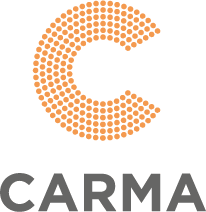Mary Hinks-Edwards, Director, Global Corporate Financial Affairs at GSK and a Women in PR/PRWeek mentoring scheme alumnus, shares how to successfully move from agency to in-house.
A few months ago, I took the plunge and moved from a PR agency to an in-house role at a global pharmaceutical company. This was a long term career objective that I had discussed with my mentor, Nicola Green, director of communications at O2.
A few eyebrows were raised amongst my agency buddies as it was announced that I was moving to the ‘dark side’. But having done my research on the company, the role and the team, I felt ready to take on a new challenge.
Now that I’m a few months into the new job, here are my five key observations from the other side of the fence:
- Master of one trade, jack of none?
Every PR consultant working in an agency is expected to be able to advise clients on a wide range of communications disciplines: issues management, media relations, digital and social to name a few. In-house, clearer structures between teams and roles mean that you’re not always exposed to all elements of the communications mix. This can be advantageous because it gives you time and space to hone your core skill, but it has also made me realise the importance of keeping on top of trends and understanding how different approaches and channels can benefit your brand. - Money, money, money
No joke – not having to do timesheets is probably one of the most glorious things about moving in-house. My previous agency – like many others – was very focused on making the numbers meet every month, and a great deal of my role involved budgeting, forecasting and making sure my teams were spending the right amount of time on billable work. Although I now enjoy the freedom of leaving my desk every day without logging into SAP, there is value in retaining the ‘time-based’ model that agency life teaches you. It helps you more accurately understand the value of time-based work, encouraging discipline and rigour. - Red pill or blue pill?
When you’re at an agency, you can advise a client to your heart’s content. In-house, you’re the one making the decisions and therefore responsible for the consequences. This brings a great sense of accountability and responsibility and it’s one of the things I most love about the new job. For one thing, it helps you hone your consultancy skills as you seek advice from the organisation and outside. It has also given me exposure to how decisions are made at the heart of a global FTSE100 company – insight that you can only get from an in-house role. - ‘I bet you’re looking forward to having no clients!’
This was said to me countless times when I told my agency teams about my move. The reality is slightly different because I now have lots of internal stakeholders to keep happy. They may not be ‘clients’ in the traditional sense, but they still need managing in a similar way. Providing them with regular updates on important issues, anticipating their needs and being an effective source of help are all still very much part of the job. - Total immersion
Being in-house requires total immersion in one organisation, so it helps if you personally support the company’s purpose and values. Whilst this can feel limiting if you’re used to juggling multiple clients, it can also bring a great sense of worth. I am lucky that my new role allows me to work with a range of teams from across the business, spanning multiple geographies and therapy areas. But if you’re considering a more specialist in-house role, make sure it’s something you personally believe in.
In short, for anyone considering taking the plunge from agency to in-house, my advice is to know exactly what you want. Don’t be afraid to ask questions at the interview about the working environment, scope for development – whatever is important to you. Do as much research as you can on the organisation and the team you’ll be working in before you join, and anticipate as many potential challenges as you can as this will help prepare you as much as possible for the change.
It helps if you’re moving to a role where agency management is a requirement. Some of the best agency/client partnerships are led by real in-house champions who understand agency life and can act as an advocate for the agency with internal stakeholders. This is when truly great work can be achieved.
@mary_hinks
@cola_green




